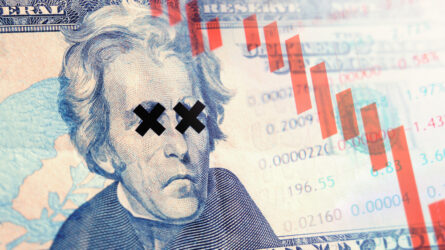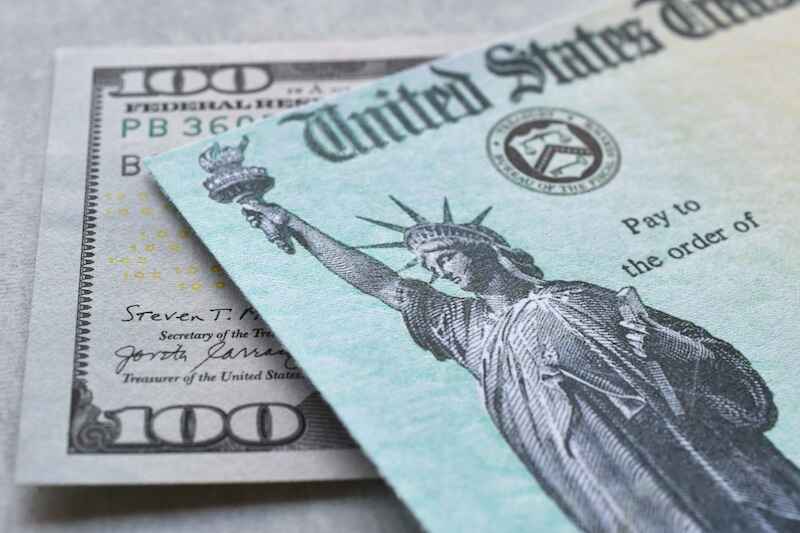Mailbag: Don’t Count Out the Dollar… Yet
Robert Ross|September 8, 2023

A Note From Amanda: Don’t forget to reserve your spot for Manward’s AI Super Trader Summit with Alpesh Patel! This is your chance to see, step by step, how Alpesh – an award-winning trader and hedge fund manager – uses ChatGPT to help target winning stocks. The results are, in a word, shocking. Click here to get the details and to sign up.
For years, there’s been talk about the “death” of the U.S. dollar.
But a string of bad economic news – our downgraded credit rating… soaring debt… surging homelessness… a struggling housing market – has Manward readers looking for answers.
Reader C.C. asks…
As the U.S. dollar destabilizes, imports will become more expensive. If you would please cover what market sectors, and companies in the sectors, are most likely to benefit?
To answer this question, we need to understand how we got to this point.
Our government doesn’t have a revenue problem.
It has a spending problem.
It spends like an out-of-control teenager with an unsupervised credit card.
Right now, just the interest expense on our debt eats up nearly 20% of all U.S. government tax revenue.

Plus, the Federal Reserve has gone completely off the rails since the pandemic. Eighty percent of all dollars in circulation were printed within the last three years.
Our money supply went from $4 trillion in 2020 to $19 trillion in 2023…

This is a key reason we’ve dealt with the worst bout of inflation in decades.
Knowing all that, you’ll probably be shocked by what I say next…
The U.S. Dollar Isn’t Going Anywhere
This part will ruffle some feathers. But if there’s one thing you can always count on me for, it’s to call it like I see it.
For one, the U.S. debt problem isn’t anything new. Our debt-to-GDP ratio stayed around 105% for the entirety of the 2010s.
While our debt load is much larger now, so is the economy. That’s why our current debt-to-GDP ratio is only 120%.

Is that high? Of course, but not high enough to destabilize a currency (as the yen has proven for decades).
Not only is the dollar not destabilizing… it’s more important to the global economy than ever.
There Is No Alternative
The dollar has lost some ground to competing currencies over the last few decades.
But it’s seen only a 12% drop in its share of foreign currency reserves.
.jpg)
Considering there are few alternatives (I’m looking at you, yuan!)… that’s nothing to worry about.
Plus, the U.S. dollar remains by far the most used currency internationally, with the euro a distant second (and the Chinese yuan in fifth place, as you can see in the chart below).

Even since the massive surge in U.S. debt following the pandemic, the dollar’s usage in international trade hasn’t wavered.
But you don’t have to take my word for it…
Listen When the Market Speaks
The market is telling you the dollar is still king.
During the global financial crisis, the COVID-19 pandemic and the early days of Russia’s invasion of Ukraine, investors flooded into U.S. dollars. It’s still considered a safe haven currency.

That is because buying U.S. dollars allows you to also buy U.S. government bonds, which are also seen as safe havens.

The dollar isn’t losing its role as the global reserve currency anytime soon. Fears about “de-dollarization” are nothing new. They crop up anytime there’s global uncertainty.
Like in 2009…

Or way back during the oil embargo…

Yes, the U.S. has some huge fiscal problems (as Alex pointed out here and here). But the U.S. dollar is simply the best choice among a lot of bad options. This is why every country on Earth holds dollars in its foreign currency reserves.
But let’s say I’m wrong and the dollar does destabilize and weaken significantly.
There are a few industries that would benefit.
Three Winners From a Destabilized U.S. Dollar
A weakening U.S. dollar would make imports more expensive.
But on the flip side, it would make U.S. exports much more attractive. That means companies that export a lot of goods would benefit…
Those companies would include many of the world’s largest, including Apple (AAPL), Boeing (BA), and Procter & Gamble (PG).
Commodity producers would also be key beneficiaries. Commodities are priced in dollars. When the dollar declines, the prices of commodities tend to rise. That’s good news for U.S. companies that export commodities, like Exxon Mobil (XOM) and Archer-Daniels-Midland (ADM).
Finally, companies that generate a lot of sales overseas would benefit from a weaker U.S. dollar. That group includes tech companies like Microsoft (MSFT) and Oracle (ORCL).
I don’t foresee a major de-dollarization coming anytime soon. But we should always be intellectually flexible – and ready to act.
I’ll be bringing this same kind of intellectual curiosity to you every week.

Robert Ross
Robert Ross’s unique style of clear and direct stock research helped him build a massive following in the investment research industry, starting his career at investment research company Mauldin Economics and quickly rising through the ranks to become one of the youngest chief analysts in the industry. Today, over a million investors turn to Ross every month for his take on investing, economics, and personal finance. He now shares his unique insights in Total Wealth and Manward Money Report.





